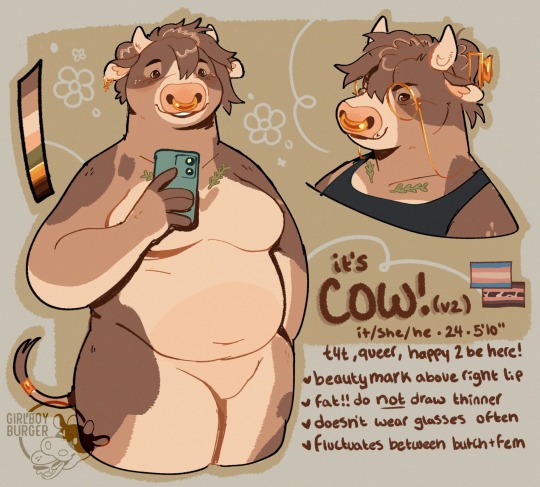#Emotional disconnect
Explore tagged Tumblr posts
Text
The Sky Inside a Watering Hole
A warped mirror perhaps?My face always twisted,always grimacing behind a dry beam.Two Tylenols are never enough. Ella.A lump caught in my throat.Her scent walks by,uninvited, yet welcomed. A blurred outline,a cutout blocking the light.I yearn to sweat nightmaresout of my pores. At night, her voice still fogsthe thick wall of silence—muffled.“Are you listening?”Obscured echoes stirdown the pit…
#Distorted Reality#Echoes of Love#Emotional Disconnect#Emotional Pain#Emptiness#Erwinism#Fading Hope#Fading Laughter#Fleeting Shadows#FYP#Ghostly Presence#Grief and Loss#Heavy Atmosphere#Hospital Imagery#Inspiration#Learning#Lingering Scent#Love#Memory Haunting#Motivation#Muted Voices#Nightmare Escape#Poem#Poetry#Progress#Quiet Mourning#Silent Desperation#Silent Suffering#Tension#Unanswered Echoes
2 notes
·
View notes
Text
Synthetic Pulse: The Future Sound of Club Culture
“Synthetic Pulse: The Future Sound of Club Culture” Welcome to the sonic revolution. At Eat My Cake Records, we’re all about pushing the boundaries of what music can be, and our latest release, “Synthetic Pulse,” is no exception. This isn’t just an album; it’s 13 albums all tied for #1 on the Soace Country Trap Top 40 —it’s an experience, a high-voltage journey through the future of sound that…
#Abstract Art#Album Cover Design#Artificial Life#Bratwave#Chaotic Vibes#Club Ghost#Contradictory Feelings#Cosmic Haze#Cosmic Honky Tonk#Cyber Emotions#Cyberpunk Aesthetic#Digital Cowgirl#Digital Distortions#Digital Mirage#Digital Void#Distorted Vocals#Dreamlike Soundscapes#Echoes of Acid#Edgy Aesthetic#Eerie Club Scene#Electric Atmosphere#Electronic Beats#Emotional Depth#Emotional Disconnect#Emotional Journey#Emotional Maturity#Emotional Turmoil#Envy and Longing#Envy Code#Espectro del Club
2 notes
·
View notes
Text
My love has never come cheaply,
Or been something easily washed away.
Instead it is something cloying,
Swamping senses and sticking to skin.
Taking root at the first opening,
Digging deep, wanting to know everything.
Each secret found only worsened it.
To protect it, no price was too high.
For this any line was crossable,
And I justified it.
And in doing so I lose it everytime,
For not everyone's price can match mine.
So I watch you wash yourself clean,
Breathing me out at last,
And desperately wish to be less.
3 notes
·
View notes
Text


i have so much rage in me one day i think i will explode. i dont think i know how to forgive as much as i know how to forget
#art#wolfy religious tedtalks#sketch#comic#i have such a huge disconnect with my emotions and i do genuinely think a lot of it ties back to religion#crazy how that happens#whats funny is i now have a lot of people i vaguely dislike but cant remember why.#crazy what happens when you treat forgiveness like an instruction and not a process
31K notes
·
View notes
Text
Dis-
You cannot keep meBy sitting on your reclining throne all daySurfing social media with nothing to sayYou can scroll through on your own time Not when sharing mineWatching you, watch your phonewhile sitting on your reclining throne That's not the play. You're such a clicheFar from my idea of an ideal dateI appreciated you, hard working manYou know what they say - about all work and no playDull…

View On WordPress
#Communication Breakdown#Disillusionment#Emotional Disconnect#freeform#freeVerse#Modern Romance#poem#poetry#Relationship Dynamics#relationships#social commentary
0 notes
Text
I wanna feel it all, so I know why I turned it off in the first place
#writing#writer#writeblr#emotions#emotional disconnect#i bet on losing dogs#this started as a lyrical quote#writers on tumblr
1 note
·
View note
Photo

New Post has been published on https://www.knewtoday.net/exploring-the-unique-behaviors-of-criminals-insights-from-psychology/
Exploring the Unique Behaviors of Criminals: Insights from Psychology

Understanding the unique behaviors exhibited by criminals is a topic of great interest in the field of psychology. Criminal behavior encompasses a wide range of activities, from petty theft to violent offenses, and delving into the psychological aspects can shed light on the underlying factors that contribute to criminality. By examining these unique behaviors, psychologists aim to develop a deeper understanding of the psychological processes at play and identify potential interventions to prevent and address criminal behavior.
Criminal behavior is a complex phenomenon influenced by various factors, including individual characteristics, social dynamics, and environmental influences. While not all individuals who exhibit certain behaviors are criminals, certain patterns and traits have been consistently observed among those involved in criminal activities. These unique behaviors offer valuable insights into the psychological makeup of criminals and can guide researchers, law enforcement agencies, and policymakers in developing effective strategies for crime prevention and intervention.
This article will delve into some of the key unique behaviors often associated with criminals, as identified by psychology. It will explore concepts such as antisocial personality traits, manipulative behavior, aggression and violence, poor impulse control, substance abuse, low empathy, poor problem-solving skills, and the impact of childhood adversity. By examining these behaviors, we can gain a better understanding of the psychological mechanisms that drive criminal behavior and inform interventions aimed at reducing crime rates and rehabilitating offenders.
Through the lens of psychology, this article aims to provide valuable insights into the unique behaviors exhibited by criminals, shedding light on the complex interplay of factors that contribute to criminality. By deepening our understanding of these behaviors, we can strive for a more informed and nuanced approach to addressing criminal behavior and its societal impacts.
Unique Behaviors of Criminals According to Psychology
Psychology has identified several unique behaviors and characteristics that are often associated with criminals. It is important to note that not all individuals who exhibit these behaviors are criminals, and these factors should be considered alongside other evidence in the context of a criminal investigation. Here are some unique behaviors often discussed in the field of psychology:
Antisocial Personality Traits: Criminals often display a lack of remorse, empathy, and disregard for the rights of others. They may exhibit a pattern of deceitfulness, impulsivity, and a tendency to violate social norms.
Manipulative Behavior: Criminals may be skilled at manipulating others to achieve their goals. They can be charming, persuasive, and adept at exploiting vulnerabilities in others for personal gain.
Aggression and Violence: Many criminals exhibit a propensity for aggression and violence. They may have a history of aggressive behavior, a lack of impulse control, and a willingness to use physical force to achieve their objectives.
Poor Impulse Control: Criminals often struggle with impulse control, making them more likely to engage in impulsive and risky behaviors without considering the potential consequences. This can contribute to their involvement in criminal activities.
Substance Abuse: Substance abuse is common among criminals. The misuse of drugs or alcohol can impair judgment, increase aggression, and lead to criminal behavior as individuals may resort to illegal activities to sustain their addiction or acquire drugs.
Low Empathy: Criminals often have a diminished ability to empathize with others. They may struggle to understand or relate to the emotions and perspectives of their victims, which can contribute to their willingness to harm others.
Poor Problem-Solving Skills: Criminals may exhibit difficulties in problem-solving and conflict resolution. They may resort to illegal activities as a means to address challenges or conflicts in their lives, rather than seeking legal or socially acceptable solutions.
History of Childhood Adversity: Many criminals have a history of adverse childhood experiences, such as neglect, abuse, or trauma. These experiences can contribute to the development of criminal behavior later in life.
It is important to remember that these behaviors and characteristics are not exclusive to criminals, and many factors contribute to criminal behavior, including social, environmental, and individual factors. Psychological assessments and evaluations conducted by professionals should be utilized to make accurate determinations regarding an individual’s criminal tendencies.
Antisocial Personality Traits
Antisocial personality traits are significant factors associated with criminal behavior. Individuals exhibiting these traits often display a pattern of disregard for the rights and feelings of others, a lack of empathy, and a general disregard for societal norms. Here, we explore the characteristics and implications of antisocial personality traits in relation to criminal behavior.
Lack of Remorse or Guilt: Individuals with antisocial personality traits tend to exhibit little to no remorse or guilt for their actions, even when their behavior causes harm to others. They may rationalize or minimize the consequences of their actions, showing little concern for the impact on their victims or society as a whole.
Impulsivity and Irresponsibility: Those with antisocial personality traits often struggle with impulse control and have difficulty considering the long-term consequences of their actions. They may engage in impulsive, reckless behavior without considering the potential harm it may cause to themselves or others. Additionally, they tend to have a lack of regard for obligations or commitments, frequently displaying irresponsible behavior such as failure to maintain employment or fulfill legal obligations.
Deceitfulness and Manipulation: Individuals with antisocial personality traits are often skilled manipulators and may engage in deceitful behavior to achieve their goals. They may lie, con, or manipulate others for personal gain, using charm and charisma to exploit vulnerabilities and gain trust.
Aggression and Hostility: Antisocial individuals may display a tendency toward aggression and hostility. They may have a quick temper, engage in physical fights, or exhibit a general pattern of confrontational behavior. This aggression can manifest in both verbal and physical forms, posing a threat to those around them.
Lack of Empathy and Callousness: Individuals with antisocial traits often demonstrate a diminished ability to empathize with others. They may struggle to understand or relate to the emotions and experiences of their victims, which can contribute to their willingness to engage in harmful behavior. They may display a lack of concern for the well-being of others and a callous disregard for the suffering they may cause.
It is important to note that not all individuals with antisocial personality traits will become criminals, as other factors, such as social environment and individual resilience, play significant roles. However, these traits are frequently observed among individuals involved in criminal activities. Understanding the connection between antisocial personality traits and criminal behavior can help inform interventions aimed at preventing and addressing criminal conduct, as well as guiding efforts to rehabilitate individuals displaying these traits.
Manipulative Behavior
Manipulative behavior is another significant characteristic often associated with criminals. It refers to the ability to influence, control, or exploit others for personal gain or to achieve one’s own objectives. Here, we explore the nature of manipulative behavior and its implications in the context of criminal behavior.
Charm and Persuasion: Manipulative individuals often possess the ability to charm and persuade others. They may be charismatic, engaging, and adept at gaining the trust and confidence of their targets. By presenting a likable and trustworthy persona, they can manipulate others into doing their bidding or complying with their requests.
Exploitation of Vulnerabilities: Manipulators excel at identifying and exploiting the weaknesses and vulnerabilities of others. They may have a keen understanding of human psychology, using this knowledge to manipulate others emotionally, financially, or psychologically. They may prey on people’s insecurities, fears, or desires, manipulating them into actions that benefit the manipulator.
Deception and Lies: Manipulative individuals are skilled at deception and often use lies to manipulate others. They may create elaborate narratives, fabricate stories, or distort the truth to further their own interests. Their lies can be persuasive and difficult to detect, making it challenging for others to see through their manipulative tactics.
Emotional Manipulation: Manipulators are adept at exploiting the emotions of others to control or influence their behavior. They may engage in tactics such as guilt-tripping, gaslighting, or playing on people’s sympathy to manipulate them into doing what they want. By manipulating emotions, they gain power and control over their targets.
Manipulation for Personal Gain: The primary motivation behind manipulative behavior is often personal gain. Manipulators may seek financial benefits, power, control, or the fulfillment of their own desires. They are willing to exploit others without regard for the well-being or rights of their victims.
In the context of criminal behavior, manipulative tactics can be used to facilitate various types of illegal activities, such as fraud, theft, or manipulation within interpersonal relationships. Criminals may use their manipulative skills to deceive, coerce, or control others, enabling them to carry out criminal acts without detection or accountability.
Understanding the manipulative behavior displayed by criminals is crucial for law enforcement, psychologists, and society at large. It allows for the development of strategies to identify and counteract manipulation, raise awareness among potential victims, and improve the overall resilience of individuals and communities against manipulative tactics.
Aggression and Violence
Aggression and violence are significant behaviors often observed in individuals involved in criminal activities. These behaviors can manifest in various forms and have distinct implications within the context of criminal behavior. Here, we explore aggression and violence as unique behaviors associated with criminals.
Physical Aggression: Criminals may exhibit a propensity for physical aggression. This can include acts such as physical assaults, fights, or acts of violence directed towards others. They may resort to physical force to achieve their goals, assert dominance, or intimidate others.
Verbal Aggression: Verbal aggression is another common form of aggression displayed by criminals. They may engage in hostile or threatening language, intimidation, or verbal abuse to assert control or manipulate others. Verbal aggression can be used as a tool to instill fear, gain compliance, or create an environment of hostility.
Impulsivity and Reactive Violence: Criminals often exhibit impulsivity and have difficulty controlling their aggressive impulses. They may react to perceived threats or provocations with immediate and intense violence. This reactive violence can be characterized by a lack of planning or forethought and a rapid escalation of aggressive behavior.
Instrumental Violence: Instrumental violence refers to the use of physical force as a means to an end, such as achieving a specific goal or gaining power over others. Criminals may employ violence strategically to achieve their criminal objectives, such as robbery, coercion, or control over territories.
Intimidation and Coercion: Aggressive and violent behavior can be used as tools of intimidation and coercion by criminals. They may use threats, physical force, or displays of violence to instill fear in others, gain compliance, or exert control over individuals or communities. This can create an atmosphere of fear and enable criminals to manipulate and exploit their victims.
It is important to note that while aggression and violence are common among criminals, not all individuals who display these behaviors are involved in criminal activities. Various factors, including underlying psychological issues, environmental influences, and individual circumstances, contribute to the expression of aggression and violence. Nonetheless, understanding the connection between aggression, violence, and criminal behavior is essential for developing effective interventions aimed at reducing crime rates, promoting non-violent conflict resolution, and addressing the root causes of aggressive and violent behaviors.
Poor Impulse Control
Poor impulse control is a significant behavioral characteristic often associated with criminals. It refers to the difficulty individuals have in regulating their immediate reactions or behaviors in favor of more rational, long-term thinking. Here, we explore the nature of poor impulse control and its implications in the context of criminal behavior.
Impulsive Behavior: Individuals with poor impulse control tend to engage in impulsive actions without considering the potential consequences. They act on their immediate desires or emotions without adequately considering the long-term effects of their actions. This impulsivity can lead to engaging in risky or illegal behaviors without considering the potential legal, social, or personal ramifications.
Lack of Delayed Gratification: Poor impulse control is often characterized by a struggle to delay gratification. Individuals may prioritize immediate rewards or pleasures over long-term goals or benefits. This can lead to engaging in impulsive behaviors, such as theft, drug abuse, or acts of violence, in an attempt to fulfill immediate desires or alleviate discomfort.
Risky Decision-Making: Individuals with poor impulse control often make decisions without fully considering the risks involved. They may engage in high-risk activities, such as reckless driving, substance abuse, or participation in illegal activities, without adequately weighing the potential negative consequences. This can result in an increased likelihood of engaging in criminal behavior.
Inability to Consider Consequences: Poor impulse control is often characterized by a diminished ability to consider or appreciate the potential consequences of one’s actions. Individuals may act in the heat of the moment without fully understanding or anticipating the impact of their behavior on themselves or others. This can lead to engaging in criminal acts without fully comprehending the potential legal, social, or emotional repercussions.
Difficulty in Emotional Regulation: Poor impulse control can also manifest in difficulties with emotional regulation. Individuals may struggle to manage intense emotions, such as anger, frustration, or impulsivity, and may act out in ways that are harmful to themselves or others. This can contribute to engaging in impulsive, aggressive, or criminal behavior as a means of coping with or expressing their emotions.
Understanding the role of poor impulse control in criminal behavior is crucial for developing effective interventions and prevention strategies. Enhancing impulse control skills, promoting emotional regulation, and teaching alternative coping mechanisms can be valuable in reducing impulsive and potentially criminal behaviors. Moreover, addressing underlying psychological factors that contribute to poor impulse control, such as attention deficit hyperactivity disorder (ADHD) or substance abuse, can be important in mitigating the risk of engaging in criminal activities.
Substance Abuse
Substance abuse is a significant behavioral characteristic often associated with criminal behavior. The misuse or dependence on substances such as drugs or alcohol can have profound impacts on an individual’s cognition, decision-making, and behavior, often leading to an increased risk of engaging in criminal activities. Here, we explore the relationship between substance abuse and criminal behavior.
Impaired Judgment and Impulsivity: Substance abuse can impair judgment and impulse control, leading individuals to make impulsive and reckless decisions. Under the influence of drugs or alcohol, individuals may engage in behaviors they would otherwise consider unacceptable or illegal, such as theft, violence, or driving under the influence.
Acquisitive Crime: Substance abusers may resort to acquisitive crimes, such as theft or robbery, to sustain their addiction or obtain drugs. The need to obtain money or resources to support their substance abuse can drive individuals to engage in criminal activities as a means to acquire the substances they crave.
Drug Trafficking and Distribution: Some individuals involved in substance abuse may become involved in drug trafficking or distribution networks. Engaging in these illegal activities provides them with access to drugs and potentially lucrative financial gains. Drug trafficking and distribution are serious criminal offenses with significant societal implications.
Violence and Aggression: Substance abuse can increase the likelihood of aggressive and violent behavior. The disinhibiting effects of drugs or alcohol can lower inhibitions and escalate conflicts, leading to physical altercations or acts of violence. Substance abuse can also exacerbate underlying aggression or anger issues, further increasing the risk of engaging in violent criminal behavior.
Legal Consequences: Substance abuse frequently leads to legal entanglements. Individuals may face charges related to drug possession, driving under the influence, or other drug-related offenses. These legal consequences can result in arrests, convictions, and potential incarceration, further intertwining substance abuse with criminal behavior.
Criminal Subculture and Associations: Substance abuse often occurs within a social context that includes criminal subcultures and associations. Engaging in substance abuse within these environments can increase exposure to criminal activities and provide individuals with opportunities to become involved in illegal behavior.
It is important to recognize that not all individuals who misuse substances become involved in criminal activities. However, the correlation between substance abuse and criminal behavior is well-established. Addressing substance abuse through prevention, treatment, and rehabilitation programs is essential in reducing the risk of individuals engaging in criminal activities while providing them with the support they need to overcome addiction and lead productive, law-abiding lives.
Low Empathy
Low empathy is a psychological characteristic often associated with criminals. It refers to a diminished ability to understand and share the feelings, perspectives, and experiences of others. Individuals with low empathy may have difficulty recognizing and responding to the emotional states of others, which can contribute to their engagement in criminal behavior. Here, we explore the nature of low empathy and its implications in the context of criminal behavior.
Lack of Remorse or Empathetic Concern: Individuals with low empathy often demonstrate little to no remorse or empathetic concern for the harm they cause to others. They may have a limited capacity to understand or internalize the emotional impact of their actions on their victims, showing little or no empathy for the suffering they inflict.
Reduced Prosocial Behavior: Prosocial behavior involves actions that benefit others or society as a whole. Individuals with low empathy may exhibit a decreased inclination to engage in prosocial behaviors. Instead, they may prioritize their own needs, desires, or goals without considering the welfare of others. This lack of empathy can contribute to a higher likelihood of engaging in criminal behavior, as the concerns and well-being of others hold little significance to them.
Lack of Perspective Taking: Perspective-taking refers to the ability to understand and consider the thoughts, feelings, and perspectives of others. Individuals with low empathy may struggle to adopt the viewpoint of others or understand the consequences of their actions from someone else’s standpoint. This limited perspective-taking ability can hinder their ability to understand the impact of their behavior on others, making it easier for them to engage in harmful or criminal acts without considering the consequences for their victims.
Difficulty Establishing and Maintaining Relationships: Low empathy can hinder the establishment and maintenance of meaningful relationships. Individuals with low empathy may struggle to connect with others on an emotional level, leading to challenges in building trust, forming healthy relationships, and maintaining social bonds. This isolation and difficulty in forming positive connections can contribute to an increased risk of engaging in criminal behavior as individuals may lack the support and positive influences necessary to deter them from criminal acts.
Manipulative Behavior: Individuals with low empathy may display manipulative tendencies, exploiting others for personal gain without regard for their well-being. Their lack of empathy allows them to deceive, manipulate, or take advantage of others without experiencing feelings of guilt or remorse. This manipulative behavior can facilitate criminal activities such as fraud, theft, or coercion.
Understanding the impact of low empathy on criminal behavior can guide interventions aimed at addressing the root causes of criminality. Promoting empathy development, social-emotional learning, and fostering a greater understanding of the perspectives and feelings of others can contribute to reducing criminal behavior and promoting more compassionate and prosocial attitudes among individuals at risk of engaging in criminal acts.
#Behavioral characteristics#Criminal behavior#Criminal psychology#Emotional disconnect#Empathy deficit#Lack of remorse#Low empathy#Psychology
1 note
·
View note
Text

had an identity crisis, prime time for a slight sona redesign!
it's cow! (again!)
+ a closeup because i'm really proud of the eyes

#i felt really extremely disconnected from cow and was like welp. time to make new fursonas#and made like four drafts before drawing cow with short hair and going 'oh.'#i ...... just need a hair cut. so i gave my fursona a haircut while i'm waiting to go#fucking. SADGE that im redesigning it so soon after its last ref but#shrugs#i do not control the heightened emotions about fursona and what it means to me#also there's a lot of experiments in this piece!! new brushes new coloring techniques new style of ref#loooots and lots of alts over on my ponytreon#my art#furry#fursona#anthro#oc#cow#cattle#oc: cow#bovine#ref#ref sheet#reference#i tried like...7 other palettes before just taking the old one and tweaking it and now i rllllllllly like it :03#i just needed less pastels/contrast and more soft/desaturated tones...who woulda thunk#(it's everyone. everyone wouldve thunk. i <3 desaturated tan tones)
2K notes
·
View notes
Text
Uh oh! Seems like someone is turning a personal discomfort issues into a other peoples morality issues!
#if you struggle with this i recommend taking some time to#sit with your discomfort and try to disconnect it from things like#fear response trauma response or otherwise emotional response#to be able to more rationally determine if this is a DISCOMFORTS or if it is a HARMS!
667 notes
·
View notes
Text

He is at his limit.
[First] Prev <–-> Next
#poorly drawn mdzs#mdzs#wei wuxian#lan wangji#LWJ's breakdown has been a long time coming and I love how he breaks down. It is a torrent of emotions he can't hold back anymore#He bites! He cries! He throws a tantrum!#We know from bonus content that he was a biter when he was younger but that's exactly the point. It is a childish behaviour.#LWJ has been help up to the highest expectations to be mature and beyond any childishness.#He is selfless - cold and composed to the outside observer.#It is a false ideal to live by to be disconnected from everyone. You can't be a person if you are perfect.#But by god he was never perfect to begin with. He has a terrible temper and is awkward in social situations.#He's overly righteous and rigid - And so on and so on. Both him and WWX know each other for their flaws first.#And it is not about how other aspects 'make up for it'. It's about seeing someone's worst traits and going 'I can tolerate that.'#You can't ask someone to love the worst parts of yourself. But you can show them and have them be tolerated.#MXTX did not write SVSSS and MDZS's main couples to be about seeing the worst parts of someone and still choosing them-#only for readers to miss the point of what that really means!
3K notes
·
View notes
Text

You did this to me.
#trigun#millions knives#my art#trigun fanart#millions knives fanart#based off I'll never gleam like you by nussy Andrews#not necessarily related but I had it on repeat while drawing this#his fuckedupass hairline 😂😂😂😂😂.#mfw Knives' themes of his human body snd disconnect with humanity yet feeling every human emotion imaginable#mfe feeling monstrous and othered is the most human experience#knives most human character lalalala im skipping through feilds rn#hes also blaming God for giving him this body and he feels extreme guilt for that idk dont worry about it its a whole thing#my mind palace.
210 notes
·
View notes
Text
Alien
Beam me up anywhere, so I might remember. Away from this pixilated galaxy. Away from the obscurity of stars’ shrieking rasps. How we drifted apart is not on gravity.Our grating language, both eyes speaking candidly of nothingness,truncated signals to send us off to the day, icy hands holding us as a divided one. Yet we paid no mind.This is how our world fell silent. The light in my window is…
#Alienation#Celestial Imagery#Collision#Cosmic Despair#Cosmic Metaphor#Death#Distance#Divided Connection#Emotional Disconnect#Emptiness#Erwinism#Fragmentation#Futility#FYP#Grief#Heartache#Inhospitable#Inspiration#Introspection#Isolation#Learning#Life#Loneliness#Love#Love Lost#Memory#Motivation#Obscurity#Pale Light#Poem
0 notes
Text
i need you all to listen to me. you know how youtube will sometimes randomly recommend videos with like, 58 views? sometimes the stars align and the fucked up algorithm does something right.
go out there and watch a smaller mcyter. sub-100k at the bare minimum, but ideally under 10k and even more ideally under 1000 subs. bonus points if they have in the low 100s to under 100 subscribers. watch whatever video you got recommended. watch another of theirs if you vibe with it. pick a specific series of theirs that you really like. subscribe to them.
now. this is really important. leave comments on the video or series you like. do a running gag if it helps remind you to comment. and more important than that: pick a story they're telling and engage with it. draw silly fanart even if you don't have any place to share it with them. write a tiny little story and keep it all to yourself. hype them up to your friends. get excited about this person's videos. if they do have a discord or whatever, send fanart, get involved in their community, et cetera, just --
i cannot stress enough how good it feels to have at least one tiny niche thing that's your special thing. it rules. the more you can get the better, in all honesty it doesn't even have to be an mcyter it could be an itch.io visual novel or something, just pick something obscure you stumble onto and hold it close and let it tell its story.
there will always be something there.
#txt#yt#orig#misc#yall i'm having emotions about ANOTHER niche mcyter (it's Ardendrus this time she's rad)#but seriously with us feeling kind of disconnected from mainline fandom stuff it feels really nice to have like#these small little pockets of ''i don't have anything to prove to anyone i want to talk about this because it's something that i love''#while i'm at it you should make an mcyt sona. even if you're never going to make videos in your life make up a guy. do it. trust me it rule#solar scraps#oh yeah since this is doing numbers for some reason. it was mostly about Ardendrus at the time but it's absolutely also about AvidMC
547 notes
·
View notes
Text
To be thought of just once,
Be a memory circling someone's head.
Instead I am bridging the gap,
Always reaching out and wanting.
Ignoring the whispers saying not enough,
And contorting myself to fit,
Coming up too much, always too much.
And yet drawing back belittled me.
Crawling for scraps and starving regardless,
Only hoping to be on your mind.
There is only pain in pride of oneself,
When it turns out it's someone no one wants.
3 notes
·
View notes
Text

stuck in your own little world
#ii#pankie art#ii fan#fan ii#inanimate insanity fanart#ii fanart#inanimate insanity fan#fan when hes disconnected from the emotions of other people or something and all he sees is whatever he wants to see from within his shell
587 notes
·
View notes
Text

diversity win! ur teenage synthezoid daughter likes girls <3
#have yall seen the infinity comic w her hacker gf... theyre so cute 🥺#the fact that viv is a lesbian is so everything to me#shes a robot girl who purposefully disconnects from her emotions and they couldve easily cornered her into being an aroace stereotype#but no!! she be kissin girls!!#rare instance where im not frothing at the mouth for aroace rep.. bc i think it just wouldnt be a good way to handle representation at all#viv vision#marvel#marvel comics#marvel champions#champions marvel#vision marvel#viv vision fanart#marvel fanart#lesbian#pride#pride month#pride art#fanart#art#my art#artists on tumblr
323 notes
·
View notes